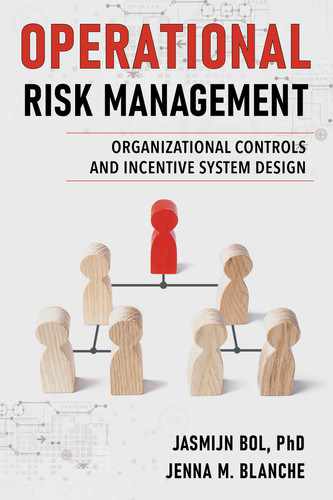To remain viable, let alone competitive, organizations must manage risks. In this book, we explore the concept of operational risk as well as the mechanisms used to diminish the impact and occurrence of risks: the organizational control system. Since the scope and scale of operational risks are unique to each organization, our objective is to explain the theory behind why and how managers respond to the unique combination of threats that challenge their organization. We emphasize employee management and the complexities surrounding the design of management controls, incentive systems in particular, because risks related to employee actions are faced by virtually every organization. Overall, we provide empirically grounded insights into the process of diagnosing operational risks as well as designing, implementing and maintaining a control system that properly manages those risks.
